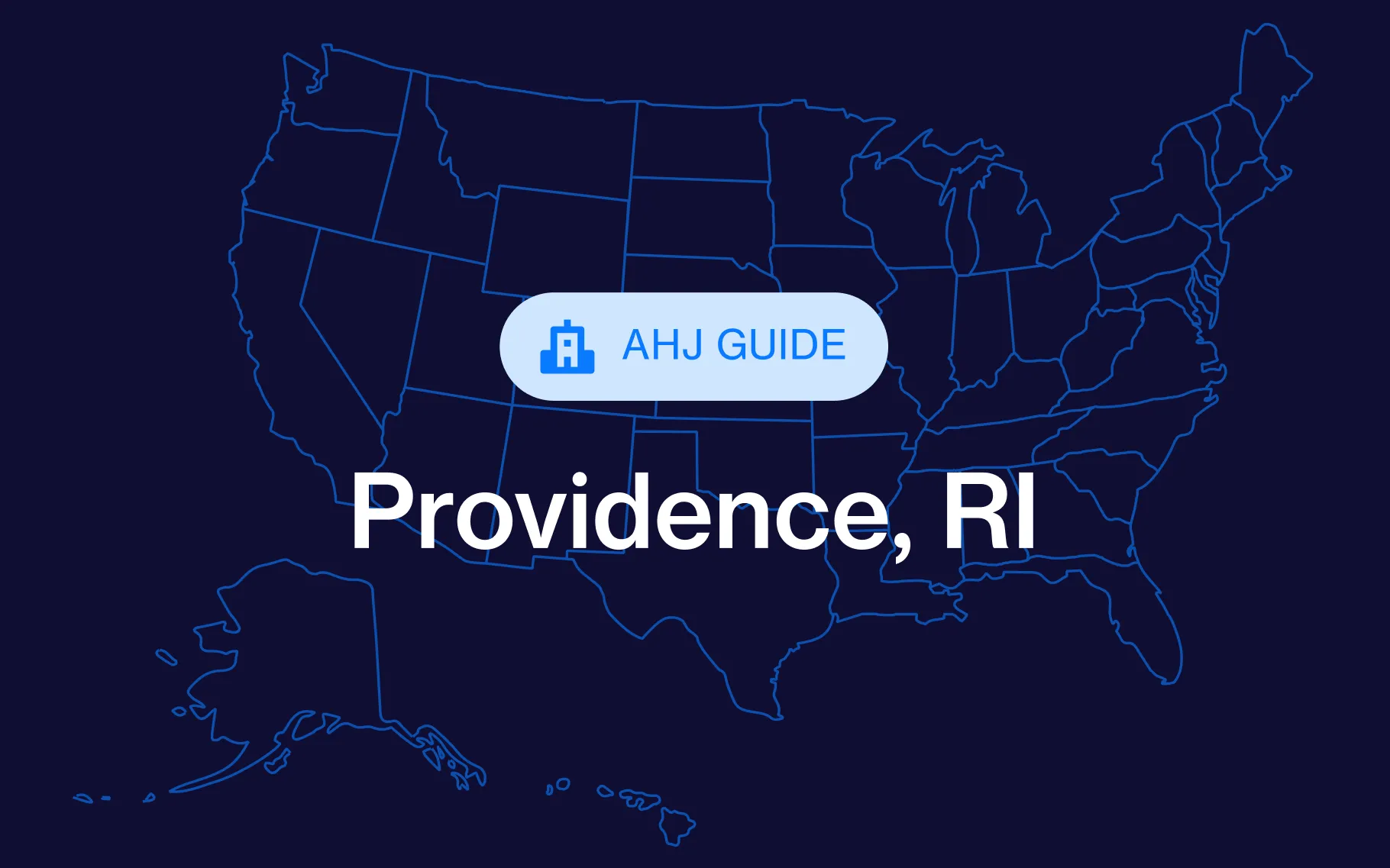For contractors, builders, and developers expanding into Rhode Island, understanding the state’s permitting requirements is essential to keeping projects compliant and on schedule. While Rhode Island is a small state, its mix of urban, suburban, and coastal communities means permitting requirements can vary significantly depending on jurisdiction.
Below, learn everything you need to know about Rhode Island building permits, who issues them, costs, and unique considerations.
Who issues building permits in Rhode Island?
Building permits in Rhode Island are issued at the municipal level. Each city or town has its own building department or zoning office that administers permits in compliance with state codes.
For example:
- Providence Department of Inspection and Standards oversees permitting in Providence
- Warwick Building Department handles permitting for Warwick
- Smaller towns like Bristol, Narragansett, or Westerly each manage their own permitting processes
Since Rhode Island has 39 municipalities, it’s important to verify local permitting requirements before starting a project
When do you need a Rhode Island building permit?
In Rhode Island, most construction projects require a building permit before work begins. This includes both residential and commercial work.
According to the Rhode Island State Building Code (RISBC), permits are required for:
- New construction of residential or commercial buildings
- Additions, alterations, or renovations to existing structures
- Electrical, plumbing, and mechanical installations (often require separate trade permits)
- Structural work, such as roof replacements, load-bearing wall modifications, or foundation work
- Decks, porches, and accessory structures
- Demolition projects
Certain minor repairs or cosmetic updates (like painting, flooring, or cabinet replacement) generally do not require a permit, but always confirm with the local building department.
Rhode Island building permit requirements
When applying for a permit, most jurisdictions in Rhode Island will require:
- Completed building permit application form
- Detailed construction plans or drawings (stamped by a licensed architect/engineer for commercial projects)
- Proof of contractor registration with the Rhode Island Contractors’ Registration and Licensing Board (CRLB)
- Zoning approval or site plan review (depending on project scope)
- Energy code compliance documentation (RI follows the International Energy Conservation Code (IECC))
- Trade-specific license information for plumbing, electrical, or mechanical permits
Additional requirements may apply in coastal or flood zone areas, where projects must comply with FEMA floodplain regulations and Coastal Resources Management Council (CRMC) requirements.
Rhode Island building permit costs
Permit fees vary by jurisdiction and are often based on either the project’s valuation or square footage.
Common permit fee structures include:
- Flat fees for smaller residential projects (e.g., $50–$200)
- Percentage of total construction cost for larger commercial projects (often $10–$20 per $1,000 of value)
- Separate fees for trade permits (plumbing, electrical, mechanical)
For example:
- In Providence, residential building permits are calculated at $15 per $1,000 of construction cost.
- In Warwick, fees start at $30 plus an additional percentage based on project valuation.
Always consult the local building department’s published fee schedule for exact costs.
Unique considerations when permitting in Rhode Island
Coastal construction
Many projects near Narragansett Bay or along the southern coast require review by the Rhode Island Coastal Resources Management Council (CRMC) in addition to local approval.
Historic districts
Cities like Providence and Newport have strict review processes through local Historic District Commissions, which can impact design and approval timelines.
State building code adoption
Rhode Island enforces its own amendments to the International Building Code (IBC), International Residential Code (IRC), and related model codes. Always review the state amendments before finalizing plans.
Energy efficiency
Rhode Island has some of the stricter energy efficiency standards in New England, particularly for new commercial buildings.
How to get a building permit in Rhode Island
The process to secure a building permit in Rhode Island typically follows these steps:
- Determine jurisdiction – Identify which city or town your project is located in.
- Prepare plans and documents – Submit stamped drawings, specifications, and required forms.
- Check zoning compliance – Ensure the project meets local zoning requirements before applying.
- Submit application – Apply through the local building department, either in person or via online portals (in larger municipalities).
- Pay fees – Fees are usually due at the time of application submission.
- Plan review – The building department and other relevant agencies (zoning, fire marshal, CRMC, historic commission) review the application.
- Permit issuance – Once approved, you’ll receive a permit placard that must be displayed at the job site.
- Inspections – Schedule inspections at required phases of construction (foundation, framing, final).






